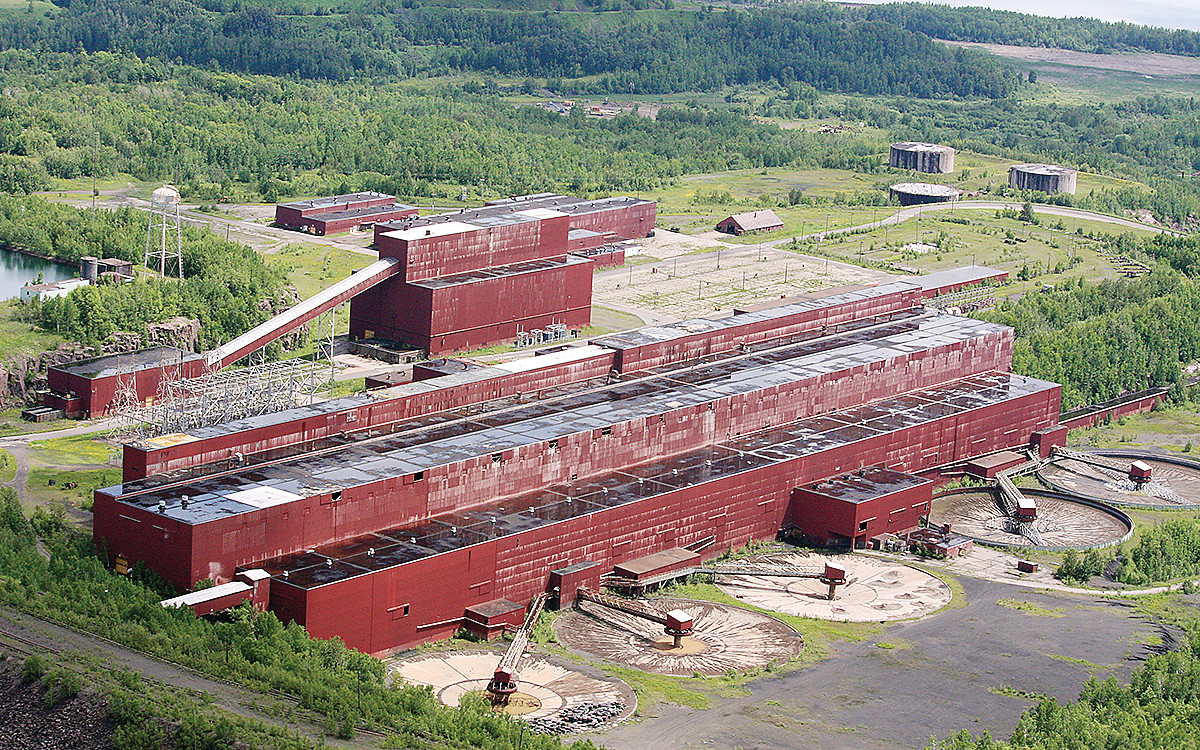Support the Timberjay by making a donation.
Lawsuits filed against PolyMet permits
Coalition of environmental groups react to DNR decisions
REGIONAL— A coalition of seven Minnesota environmental groups filed lawsuits on Monday seeking to overturn the Minnesota Department of Natural Resources’ recent approval of permits for the …
This item is available in full to subscribers.
Attention subscribers
To continue reading, you will need to either log in to your subscriber account, or purchase a new subscription.
If you are a current print subscriber, you can set up a free website account and connect your subscription to it by clicking here.
If you are a digital subscriber with an active, online-only subscription then you already have an account here. Just reset your password if you've not yet logged in to your account on this new site.
Otherwise, click here to view your options for subscribing.
Please log in to continue |
Lawsuits filed against PolyMet permits
Coalition of environmental groups react to DNR decisions
REGIONAL— A coalition of seven Minnesota environmental groups filed lawsuits on Monday seeking to overturn the Minnesota Department of Natural Resources’ recent approval of permits for the state’s first copper-nickel mining operation.
The groups including the Minnesota Center for Environmental Advocacy, Water Legacy, Friends of the Boundary Waters, and the Center for Biological Diversity, are also asking the state’s Court of Appeals to throw out mining rules developed by the DNR, arguing that they are too vague to be enforceable. The lawsuits target the recent decision to issue a number of permits, including a permit to mine, to PolyMet for its proposed NorthMet copper-nickel operation near Hoyt Lakes.
“The courts must hold the DNR accountable to the law or PolyMet’s permits will be a blank check paid for by the clean water, health, and pocketbooks of Minnesotans,” said Kathryn Hoffman, MCEA’s chief executive officer.
A joint press statement issued by the groups contends that permits for PolyMet’s proposed mine do not protect people downstream from pollution the mine would generate.
“The department arbitrarily rejected less risky alternatives for managing mine waste,” states the release. “The permits allow PolyMet to threaten water downstream for hundreds of years after mining ends, fails to address concerns of engineers who fear the mine’s proposed waste dam is dangerous and fails to protect Minnesota taxpayers from being stuck with up to $1 billion in cleanup costs.”
According to the environmental groups, the state permits also fail to define how long PolyMet will be allowed to mine nor describe PolyMet’s exact mining and closure plans. They say Minnesota rules require final design plans to be submitted before permits are issued, but the state agency’s permits allow PolyMet to develop the open-pit mine and submit plans for closure later. “The permits do not establish any standards for the approval of these future plans and the public will not be able to comment on them,” according to the press statement.
“There is a myth in Minnesota that we have tough regulators. Just the opposite,” said Paula Maccabee, advocacy director and legal counsel for Water Legacy. “The DNR has granted PolyMet a permit to mine admitting that its design and operational details are not ‘firmly in place.’ At the very least, with Minnesota’s first proposed sulfide mine, we should demand that no permits be issued unless and until PolyMet shows us, and an unbiased administrative judge, that they know what they’re doing.”
The groups are appealing a number of DNR decisions, including the agency’s decisions to issue a dam safety permit in addition to the permit to mine. The groups are also challenging the DNR over its decision not to order a contested case hearing, which would have allowed environmentalists to raise their concerns about impacts and financial assurance through a formal administrative process. The groups had requested such a proceeding earlier this year, but the DNR rejected that request at the same time it issued its permits for PolyMet back on Nov. 1.
The flurry of legal filings provoked a sharp response from the pro-mining group, Jobs for Minnesotans, which called the action “one more attempt to delay a critical project for the state of Minnesota that has demonstrated it can meet or exceed regulatory standards.” The group argues that the DNR made the right call in advancing the project. “This project is Minnesota’s first opportunity to supply essential metals, such as copper and nickel, to the green economy and other critical components of our modern world.”
But J.T. Haines, and attorney and organizer with Duluth for Clean Water, said the plan sacrifices water quality that Duluth residents rely on. “With over 1,300 signatures and a majority of elected officials, Duluthians openly requesting a contested case hearing on this permit, that hearing should have been ordered. The process fails all the time with sulfide mining, and we don't want to be the next example of communities harmed by downstream pollution."
Other organizations joining in the lawsuit include Friends of the Cloquet Valley State Forest, Save Lake Superior Association, and Save Our Sky Blue Waters.






